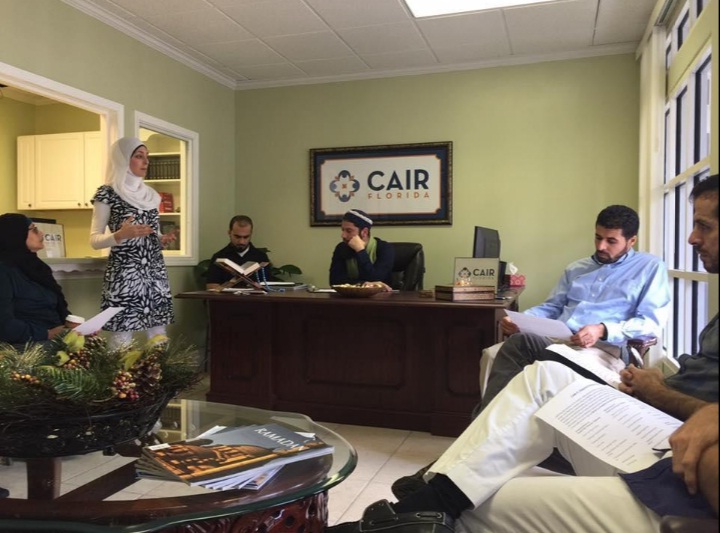
RNA - A few days after the 2016 presidential election, Raushan Yegizekova's 6-year-old daughter was playing with another child at a shopping center when the other mother gave Yegizekova an irritated look. As she and her daughter walked away, the woman subtly commented that she hated radical Muslims, Yegizekova said.
“It’s frustrating, especially when your kids hear that,” Yegizekova said. “That destroys their confidence.”
Yegizekova wears a hijab and is a member of the Bay County Islamic Society. She also is a mother and a student, studying electrical engineering at Gulf Coast State College.
Yegizekova and other Muslims in the community said they have dealt with prejudice toward Muslims since long before this year's heated presidential campaign. Their worries can be subtle — Yegizekova said if she turns on Arabic music while driving, her daughter says to turn it off — but a hostile political season seems to have made tensions higher.
Islamophobia increase
Statistics back a perceived increase in harassment toward Muslims, said Hiba Rahim, the Northwest Florida regional coordinator for the Council on American-Islamic Relations-Florida (CAIR). CAIR is an organization made of independent chapters across the country that defend civil liberties. The Northwest regional office, located in Panama City Beach, officially opened in November and covers the region from Pensacola to Tallahassee.
In an annual report, CAIR-Florida said there were 26 anti-Muslim incidents reported in 2015, an increase from 5 reported incidents in 2014. Rahim said harassment often isn't reported to the police because instead of physical attacks, the harassment tends more often to be verbal threats made in passing. Those incidents are, however, reported to CAIR.
And Bay County is not alone. The Southern Poverty Law Center and other groups nationwide have marked an uptick in reported hate crimes against Muslims since the election, along with increased threats and actions against blacks, Jews, immigrants and other minority groups.
About 1,000 Muslims live in Bay County, some of whom spoke with The News Herald about their experiences and emotions after the election. Yegizekova said prejudice was always there, but Trump’s election gave hateful people a green light.
Rahim acknowledged reports are up but said she was called a terrorist even before this year's political season.
“I attribute that to a lack of understanding,” she said, adding such ignorance makes her sad.
Community support
Although Bay County is a Republican stronghold, the Muslim community recognizes not all Trump supporters agree with the Islamophobic rhetoric that emerged during the presidential campaign, Rahim said.
“As a Muslim community, we hold Bay County to a high standard, and we hold them in high regard,” Rahim said. “We have high expectations for them just as we hold ourselves to high regards.”
There also have been people in the community who have told the Muslim community they are loved and welcomed here. The local mosque has received letters of support, and Yegizekova said people in her school study group have stood by her.
“It’s important to recognize the support the Bay County community has given us. ... We’re really so grateful for that,” Rahim said. “It keeps us going.”
CAIR specifically is bridging the gap by reaching out to the media and working with police and others on cultural and sensitivity training. Muslims focus on doing good deeds and expect that to be reciprocated, Rahim said, adding going along with widespread media depictions of terrorists will only further divide people.
“There are terrorists. They are horrible,” Yegizekova said. “But you can’t paint everyone with one brush. ... Come talk to us. We’re your neighbor.”
As for concerns Muslims will be kicked out or not allowed in America, Rahim said she didn’t think American Muslims would be deported but added Trump is lining up a cabinet that is strong on anti-immigration laws and has a history of racial bias. However, she expects CAIR, the American Civil Liberties Union and other civic organizations will step up if unconstitutional actions are taken.
In the meantime, the Muslim community will wait to see if Trump will live up to everything he said as part of his platform, though Rahim added he now is in a position to do just the opposite — to mend the divide he created.
“He’s capable of it,” she said. “It’s a matter of whether he chooses to bring people together.”
847/940